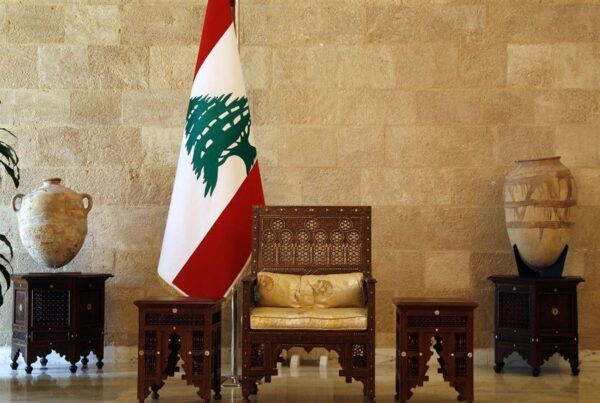By: Ya Libnan Editorial Board
Introduction: Lebanon’s presidential election system has come under scrutiny in recent years due to its inherent flaws and the potential for undemocratic outcomes. In the most recent election the candidate of the opposition , former minister Jihad Azour secured 59 votes of the 128 member parliament in the first round while his opponent the Hezbollah backed candidate secured 51 votes . At the end of the first round the MPs of Hezbollah and its allies and their candidate left the parliament and declared victory . The speaker who is allied with Hezbollah decided to end the election session.
The current system, which requires a candidate to secure a two-thirds majority in the first round, often leads to situations where even a candidate with the support of 65 % of the parliament in the first round may fail to secure victory. It is imperative to reconsider this system and explore alternative approaches to ensure a fair and representative electoral process.
The Current Electoral System:
In Lebanon, the presidential election process involves a complex set of rules that often favor certain political factions and hinder the prospects of more diverse candidates. Under the existing system, a candidate must secure a two-thirds majority in the first round of voting to be elected.
Flawed Outcomes:
The requirement of a two-thirds majority in the first round creates a significant hurdle for any candidate seeking election. Even if a candidate manages to secure the support of 65% of the parliament, they may still fall short of the necessary threshold for victory. This scenario raises concerns about the democratic legitimacy of the process, as the will of the majority can be disregarded, and a candidate with minority support may eventually dictate the presidency.
Quorum Quandary:
Furthermore, the second round of voting exacerbates the problem. As per the current system, the losers from the first round leave the parliament, potentially resulting in a reduced quorum for the second round. With the requirement of a two-thirds majority effectively removed in the second round, this quorum issue risks further undermining the electoral process. The legitimacy of a presidential election in which the two-thirds quorum cannot be met is questionable and may erode public trust in the outcome.
Proposed Reform:
Half Plus One System: To address these issues, a more inclusive and democratic alternative should be considered. One potential solution is adopting the “half plus one” system in the first round. Under this approach, a candidate who secures a simple majority (more than 50%) in the parliament would be declared the winner. This reform would ensure that the candidate who garners the most support, even if not reaching the two-thirds threshold, can assume the presidency.
Benefits of Reform:
By implementing the “half plus one” system, Lebanon would enhance the democratic nature of its presidential elections. This change would give a fair chance to candidates who have garnered significant support from the parliament, rather than allowing a minority to potentially dominate the outcome. The reform would also simplify the election process, removing the need for a second round and eliminating concerns surrounding the quorum requirement.
Conclusion:
The current presidential election system in Lebanon is in dire need of reform. The existing two-thirds majority requirement in the first round, coupled with the potential quorum issues in the second round, has resulted in undemocratic outcomes and a lack of faith in the process. By adopting the “half plus one” system in the first round, Lebanon can move towards a more representative and inclusive electoral process, ensuring that the will of the majority prevails. It is crucial for the Lebanese lawmakers to address these concerns and work towards a fairer presidential election system that upholds the principles of democracy and strengthens public trust in their democratic institutions.


Leave a Reply
You must be logged in to post a comment.